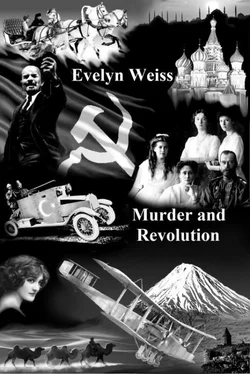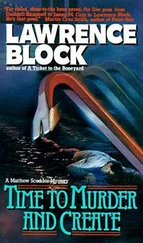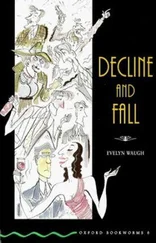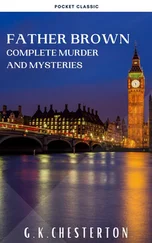Evelyn Weiss
MURDER AND REVOLUTION
“I am confident that the whole history of the human race contains no other episode as horrible as this.”
Henry Morgenthau Sr., United States Ambassador
List of principal fictional characters
Professor Felix Axelson, Swedish: a celebrated hypnotist and private detective
Agnes Frocester, American: the professor’s companion and assistant
Vasily Bukin, Russian: the professor’s host and guide in Russia
General Evgeny Aristarkhov, Russian: a senior military commander
Captain Yuri Sirko, Russian: a cavalry officer
Lord Buttermere, British: leader of British Intelligence
Emily Neale, American: a freethinker and journalist
Andrei Sokolov, Russian: manager of the Yermak Estate, a place of exile for Russian dissidents
Rufus du Pavey, British: a former pilot and writer
Mariam Sarafian, Armenian: an orphan
Commander Kılıç Pasha, Turkish: a senior military officer of the Ottoman Empire
“‘Beware of Greeks bearing gifts.’ That is an English saying, is it not?”
“It is, Professor, but I think it comes from the story of the Trojan Wars.”
Professor Axelson and I are sitting by an open window in the professor’s home, a beautiful apartment on Gamla Stan, the island at the centre of Stockholm. A warm breeze blows in off the harbor, which is crowded with ships. The rippling white sails of a four-masted barque are reflected in glittering waters. It’s late summer, 1916, and I’m here on a holiday. Half the world is at war, but in neutral Sweden, there is peace.
“Miss Agnes, I am like the Trojans. I have received a gift – but I suspect that, like the Trojan Horse, it may contain something hidden and unwelcome.”
He shows me a letter. I notice the crest, the royal insignia. I scan it quickly, but I don’t understand Swedish. The professor explains.
“It is a personal letter from the king of Sweden, Gustaf V. He wishes to make me a Commander of the Royal Order of the Polar Star. The Swedish equivalent of a knighthood. He says he wants to confer the honor ‘for your services to police investigation, and your pioneering use of hypnosis to solve crime.’”
“That’s marvellous!”
“The Trojan Horse probably looked marvellous, Miss Agnes. It would indeed be gratifying to be honored in this way. But the final line of the letter may be a sting in the tail. It says ‘Professor, I would be delighted to welcome you, and a companion of your choice, as guests at my home at Drottningholm Palace, before the award is conferred formally at the Sveriges Kungahus. There is a delicate matter on which I would like your advice.’”
“That sounds fine. He’s only asking for advice.”
“I have tangled with royalty before, Miss Agnes. My experiences in Germany…”
“But Gustaf V is hardly the Kaiser.”
A small, elegant ship is anchored by the quayside of Gamla Stan. It’s the royal launch. The professor and I walk down the gangway. A few minutes later, we are watching the buildings of the city slip by as we sail up the narrow waters of the Riddarfjärden into Lake Mälaren. Stockholm is a city built on a hundred islands, and soon we see the green, wooded island of Lovön and the Drottningholm pleasure grounds. A few minutes later, the palace itself comes into view. It’s a dignified, cream-colored edifice, fronted by gardens that slope gently down to a low parapet on the waterside.
The launch anchors alongside the parapet. I notice a genteel figure in late middle age, wearing a frock coat, at the centre of a group of courtiers. He’s noticeably taller than any of his companions. As Professor Axelson steps from the gangway, the man comes forward and shakes his hand. The professor bows low; the man smiles in return. Under a high forehead, the king’s keen eyes are framed by thin gold-rimmed glasses, and he wears a carefully-trimmed mustache. His figure is broad-shouldered, but slim and athletic, and I recall that, not so many years ago, he ranked among the world’s top tennis players.
“Welcome, Professor Axelson; welcome, Miss Frocester. The professor and I will speak in English, so as to fully include you in our conversation. Although I gather you are something of a linguist – like the professor, you speak Russian, I believe?”
I try my best at a curtsey. “I don’t speak Swedish, your Majesty, but yes – I have picked up a little Russian. In my hometown in the United States, I worked weekends for a Russian tailor.”
“You hometown is?…”
“Putnam, Connecticut. My father runs the town drugstore. But I came to Europe soon after the war started. I’ve been working as a nursing assistant for the British Red Cross.”
The king nods. “That’s very admirable. I’m glad you have the opportunity of a holiday in Sweden. You are seeing Stockholm at its best, in this fine summer weather. Our Swedish winters are quite a different matter.”
“I’m sure they are, your Majesty.” The little exchange of small talk has put me at ease, as the king continues.
“We’re quite informal here at Drottningholm. I thought that the three of us could walk, enjoy the grounds. We can wander towards the Chinese Pavilion.”
The palace gardens are a blaze of color. Vivid red and yellow beds of August flowers form geometric patterns. But they soon give way to a park of open lawns and patches of woodland. As we stroll along in the sunshine, the king and the professor both surprise me: they quickly move to a business-like conversation.
“Thank you for responding to my invitation, Professor Axelson. Loyal subjects like you are precious to me – especially in these difficult times. So I will come straight to the point. What are your thoughts on the murder of Svea Håkansson?”
“I wish I knew more about it, your Majesty. I have read only the press reports of her death in Russia. There seem to be very few established facts. The newspaper articles are padded out with vague speculation.”
“As you will know, Professor, Miss Håkansson was the eldest daughter of the oldest noble family in Sweden. What you may not know is that she was a key diplomat in our difficult relations with Russia.”
“No, your Majesty. I was not aware of that.”
“It is a mark of Svea Håkansson’s skill in diplomacy that her name is not more widely known. The most effective power is wielded behind the scenes.”
“Indeed.”
“But what you will be well aware of, Professor, is that the situation in Russia is on a knife-edge. In the war with Germany, they have suffered catastrophic defeats. They have conceded great swathes of territory, and worst of all, their casualties are on an astronomic scale. A whole generation of young Russian men are being slaughtered like cattle. That is on top of Russia’s many other problems – poverty, industrial backwardness, and the threat of violent revolution.”
I look across the green lawns to the graceful outline of the Chinese Pavilion. In our idyllic setting, the king’s words of doom seem hardly real. But he carries on.
“Alongside this catalog of disasters, the monk Rasputin casts a spell over the Tsarina. We know he is trying to persuade her and her husband to beg the Kaiser for peace.”
I look at the king. “Your Majesty – peace would be a good thing, wouldn’t it?”
“Rasputin wants the Tsar to buy a cease-fire with Germany, by handing over to them lands that are currently part of the Russian Empire – Poland, Finland, Belarus, Latvia, Lithuania and Estonia. Germany would completely dominate the Baltic region. That would be disastrous for Sweden.
Now, I must speak very frankly to both of you. Rasputin pretends to be a man of religion. In fact, he is quite the opposite. His name is a byword for sexual adventuring, drinking and bribery. In fact, it has become commonplace in Russia to say: if you want anything done, pay Rasputin – he will make it happen for you. The man has a controlling and corrupting influence on everyone around him.”
Читать дальше












